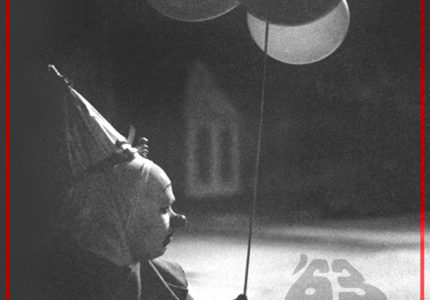The task of a music critic/neophyte music blogger is to take an album and put it in a crucible. They then boil the songs down into an articulate point that helps the reader make an informed decision whether to buy an album or not. The reader relies on that writer to take up this charge and not silently weep in the corner because they don’t know what to write about Titus Andronicus’ The Monitor.1 I mean, who would be foolish enough to do that?
Hi, I’m Clay. And here are my tear-stained Kleenexes.
On paper, Titus Andronicus should infuriate me. They come across as esoteric by naming themselves after an obscure Shakespeare play. They insert poems by Walt Whitman into their songs. They write intellectual lyrics that seem more bookish and beyond the experience of young men in their early twenties.2 They perform 8 minute songs that could best be described as ambitious. Everything about them feels affected.
However…
There is a difference between affectation and execution. There is no shame in setting the bar high as long as you are able to reach it. Never once during my 66 minute jaunt through The Monitor did I ever bore of the 10 tracks on it. The songs are protracted and grand, yet each song varies enough that you do not notice that you’ve been listening to the same song for 6 to 8 minutes. These sweeping songs generally mean the album is better listened to as a complete piece instead of a track here and there. As long as you have the time, it is a joy to experience.
Why?
It sounds like these guys had a blast recording this album. Patrick Stickles’ raw voice carries a lot of emotion and when he screams a line, you feel he’s doing it for a reason. A lot of the songs are played fast and loose, which is normally the opposite of what we want out of band. Titus Andronicus abandons that expectation by careening through each track and having fun doing it. That fun is infectious. “Four Score and Seven” embodies the theme of The Monitor – a song that starts as a slow burn with horns and strings, leading to a turn in the middle with a military snare. The song builds and builds, ending with a chorus of “It’s still us against them!” and several distortion-filled power chords bring the emotional wave to a powerful conclusion. I can picture the band playing this song live in my head, and they are smiling the entire time.
So, did I like it?
Yes, The Monitor is immensely fun to listen to. For the most part, I try and ignore the spoken word interludes of Walt Whitman poems and President Lincoln’s addresses as they feel forced, but overall I would say that it gets a lot of play at home and at work. If The Monitor was released when I was a teenager, it never would have left my CD player. It would have constantly been playing, drawing my teen angst to the surface. Now I listen to the album front to back every so often to a) remember an age when I spent all my time being mad at the world3 and b) get lost in Titus Andronicus’ punk revelry.
Looks like I found my crucible.
1. Especially if they were the one to suggest the album.2. Call this the “Piano Man” corollary. College students love singing along to Billy Joel’s “Piano Man” but have no frame of reference of the hardships and hand-to-mouth lifestyle of the performer and the audience within his song. It sounds poetic and beautiful – so we sing along and perceive ourselves as deep. The rest of the population perceives us as idiots.
3. Now I just spend my time being mad at half the world.





